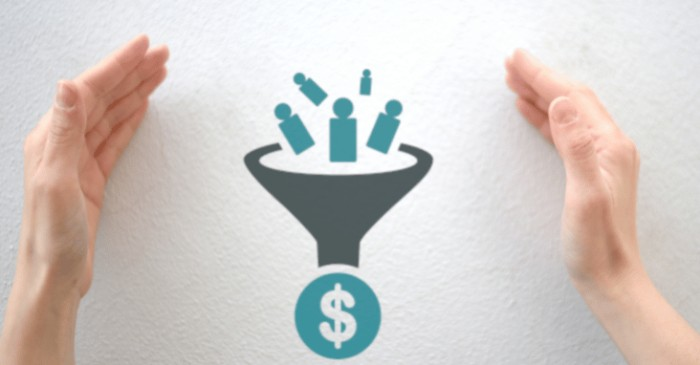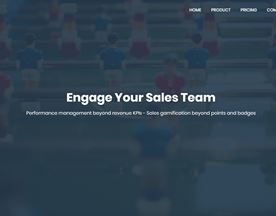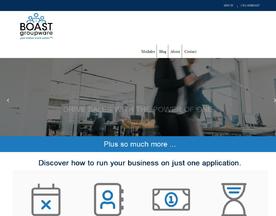What is b2b Sales?
B2B Sales, or “business-to-business” sales, refers to selling products or services from one company to another. Unlike B2C sales, which are made to individual consumers, B2B sales are made to other companies or organizations that use the products or services in their operations.
This post provides an overview of B2B sales, including its definition, types, key skills, and the sales cycle and metrics used to measure success. We will also explore current trends in the B2B sales industry and how they impact how companies sell their products and services.
Types of B2B Sales
B2B sales can take many forms, depending on the product or service sold and the industry it is sold to. Some of the most common types of B2B sales include:
Product Sales:
This type of B2B sales involves the sale of physical products, such as raw materials, machinery, or finished goods. Companies that manufacture or distribute products often engage in B2B sales to sell their goods to other businesses.
Service Sales:
Many businesses provide services rather than products. This can include consulting, legal services, IT support, and many other types of professional services. Service-based companies often engage in B2B sales to sell their services to other businesses.
Digital Sales:
With the increasing use of technology in business, many companies are now selling digital products and services, such as software, apps, and online subscriptions. Digital B2B sales often involve licensing agreements or online marketplaces.
Wholesale Sales:
This type of B2B sales is used by manufacturers and distributors to sell large quantities of products to retailers, who then resell the products to consumers. Wholesale sales often involve bulk discounts and longer lead times for delivery.
It’s important to note that these types of sales are not mutually exclusive; many companies can engage in multiple types of B2B sales depending on their products and services.

B2B Sales Cycle
The B2B sales cycle (or sales funnel as it’s sometimes called) is the buyer’s journey from a potential customer into an actual customer. The sales cycle can vary in length and complexity depending on the product or service sold and the potential customer’s size. The typical B2B sales cycle includes the following stages:
Prospecting: This stage involves identifying and qualifying potential customers. Salespeople use a variety of methods, such as networking, cold calling, and online research, to generate a list of potential customers.
Qualifying: In this stage, salespeople use various criteria to determine which potential customers are most likely to buy the product or service. This includes evaluating the customer’s needs, budget, and decision-making process.
Demonstrating: In this stage, the salesperson presents the product or service to the customer, highlighting its features and benefits and addressing any objections or concerns the customer may have.
Closing: This is the stage where the salesperson asks the customer to make a purchase. This can involve negotiating the terms of the sale, such as the price, delivery date, and payment terms.
Follow-up: After the sale is made, the salesperson continues to stay in contact with the customer to ensure that they are satisfied with the product or service and to identify any opportunities for upselling or cross-selling.
It’s important to note that the sales cycle can vary in length; for some products or services, it may be short, and for others, it may take several months or even years to close a deal.

Key B2B Sales Skills
B2B sales often require different sales techniques than B2C sales, as the sales cycles are typically longer and more complex. Often a sale involves multiple decision-makers within the purchasing organization. Some key skills required for success in B2B sales include:
Relationship building: Building and maintaining relationships with key decision-makers within target businesses is crucial for success in B2B sales. This requires effective communication and a deep understanding of the customer’s needs and pain points.
Communication: B2B sales often involve presenting complex products or services to technical buyers. Strong communication skills, both verbal and written, are essential for clearly articulating the value of your offerings and answering any questions or objections that may arise.
Negotiation: B2B sales often involve multiple stakeholders, competing interests, and larger deals. Therefore, effective negotiation skills are crucial for closing deals and securing favorable terms.
Product knowledge: Understanding the features, benefits, and competitive advantages of your products or services is essential for effectively positioning them to potential customers.
Industry knowledge: Understanding the trends, challenges, and key players in the industry in which you are selling is crucial for identifying potential customers and tailoring your sales approach to their specific needs.
Having a deep understanding of your customer’s business, their industry, and their specific needs is key to success in B2B sales.

B2B Sales Metrics
Measuring and tracking performance is an important aspect of B2B sales. Sales teams use various metrics to monitor and evaluate their performance; some of the key metrics used in B2B sales include:
Lead generation:
This metric measures the number of potential customers that are identified and qualified during the prospecting stage of the sales cycle. This can be measured in the number of leads generated per month, per quarter or per year.
Conversion rate:
This metric measures the percentage of leads that are converted into actual customers. It helps sales teams to track how effective they are at moving leads through the sales cycle. The higher the conversion rate, the more efficient and effective the sales process is.
Average deal size:
This metric measures the average revenue generated from each sale. It can be used to evaluate the effectiveness of different sales strategies and to identify opportunities for upselling or cross-selling.
Customer lifetime value:
This metric measures the total revenue generated from a customer over the entire duration of their relationship with the company. It helps sales teams to focus on retaining and growing their most valuable customers.
Sales team productivity:
This metric measures the efficiency and effectiveness of the sales team, including the number of calls made, emails sent, and meetings held. It can be used to identify areas where the sales team can improve their performance. Additionally, metrics like Sales per Rep, Sales per Account, and Sales per Territory can be used to evaluate the individual performance of sales representatives.
By monitoring and analyzing these metrics, sales teams can identify areas for improvement, track progress, and make data-driven decisions to optimize their sales performance. It’s also important to track these metrics over time to better understand the sales team’s performance and make adjustments accordingly.

B2B Software Tools
B2B sales teams use various tools to help them manage the sales process and improve their performance. Some of the most common B2B sales tools include:
Customer Relationship Management (CRM) software: CRM systems are used to manage customer interactions and track leads, opportunities, and customer information. They allow sales teams to access customer data, track sales progress, and manage customer interactions in one central location.
Marketing Automation software: Marketing Automation software allows sales teams to automate repetitive tasks, such as sending emails and creating targeted marketing campaigns. It also helps to track and analyze customer behavior, providing sales teams with insights to improve their sales strategy.
Sales Intelligence software: Sales Intelligence software helps sales teams to identify new sales opportunities and track leads by providing access to data on potential customers and their activities.
Sales Enablement Tools: Sales enablement tools help sales teams to access the right information, at the right time, in the right format and deliver it to the right audience. It helps them to be more efficient and effective when communicating with customers and prospects.
Sales Presentation software: Sales presentation software allows sales teams to create and deliver professional, engaging presentations to their customers. They can also track how customers engage with their presentations and use that data to improve their sales pitch.
Project management software: Project management software helps sales teams to organize and manage their sales projects, such as creating a schedule, assigning tasks, and tracking progress.
These are just a few examples of the tools that are available to help B2B sales teams manage their sales process and improve their performance. The best tool will depend on the specific needs of the sales team and the company they work for. – Find The Best: Sales Software
B2B Sales Trends
The B2B sales industry is constantly evolving, and it’s important for sales teams to stay up-to-date with the latest trends to remain competitive. Some of the current B2B sales trends include:
Increasing use of technology: Sales teams are increasingly using technology such as customer relationship management (CRM) systems, marketing automation software, and artificial intelligence (AI) to streamline their sales process and improve their performance.
Personalization and customization: B2B customers are looking for solutions that are tailored to their specific needs and pain points. Sales teams are focusing on providing customized solutions and personalizing their sales approach to better meet their customers’ needs.
Emphasis on customer experience: B2B customers are placing greater importance on the overall experience they have with a company, including the quality of customer service and the ease of doing business. Sales teams are focusing on providing a positive customer experience to differentiate themselves from their competitors.
Greater importance of data and analytics: Sales teams are using data and analytics to better understand their customers and make data-driven decisions. This includes tracking customer behavior, analyzing sales data, and using predictive analytics to forecast future sales.
The impact of e-commerce on B2B sales: With the rise of e-commerce, many B2B companies are now selling their products and services online. This has led to an increase in self-service sales and the use of digital channels, such as social media and email, to reach customers.
By staying current with these trends and adapting their sales strategies accordingly, B2B sales teams can improve their performance and better serve the needs of their customers.
B2B Frequently Asked Questions (FAQ)
What is B2B sales? – B2B sales, or “business-to-business” sales, refers to the sale of products or services from one company to another, as opposed to sales made to individual consumers (B2C, or “business-to-consumer”). B2B sales are typically made to other companies or organizations that will use the products or services in their own operations rather than reselling them to their own customers.
What are some examples of B2B sales? – Examples of B2B sales include a manufacturing company selling raw materials to a factory, a consulting firm selling services to a corporation, a software company selling a subscription to a government agency, and a distributor selling goods to a retailer.
How is B2B sales different from B2C sales? – The main difference between B2B and B2C sales is the type of customer being sold to. B2B sales are made to other businesses, while B2C sales are made to individual consumers. B2B sales often involve longer sales cycles, more complex negotiations, and a higher value per sale than B2C sales.
What are some key skills required for success in B2B sales? – Key skills required for success in B2B sales include relationship building, communication, negotiation, product knowledge, and industry knowledge.
What are some metrics used to measure success in B2B sales? – Metrics used to measure success in B2B sales include lead generation, conversion rate, average deal size, customer lifetime value, and sales team productivity.
What are some current trends in the B2B sales industry? – Current trends in the B2B sales industry include increasing use of technology, personalization and customization, emphasis on customer experience, greater importance of data and analytics, and the impact of e-commerce on B2B sales.
What are business-to-consumer sales? – Business-to-consumer (B2C) sales refer to the sale of products or services from a business to individual consumers. These sales are typically made through retail, brick-and-mortar stores, online marketplaces, or e-commerce websites.
Does b2b sales have a longer sales cycles? – Yes, B2B sales typically have longer sales cycles than B2C sales. This is because B2B sales often involve multiple decision-makers within the purchasing organization, and each decision-maker may have their own set of criteria and needs that must be met before a purchase can be made. Additionally, B2B sales often involve larger deals and more complex products or services, which can add to the length of the sales cycle.















